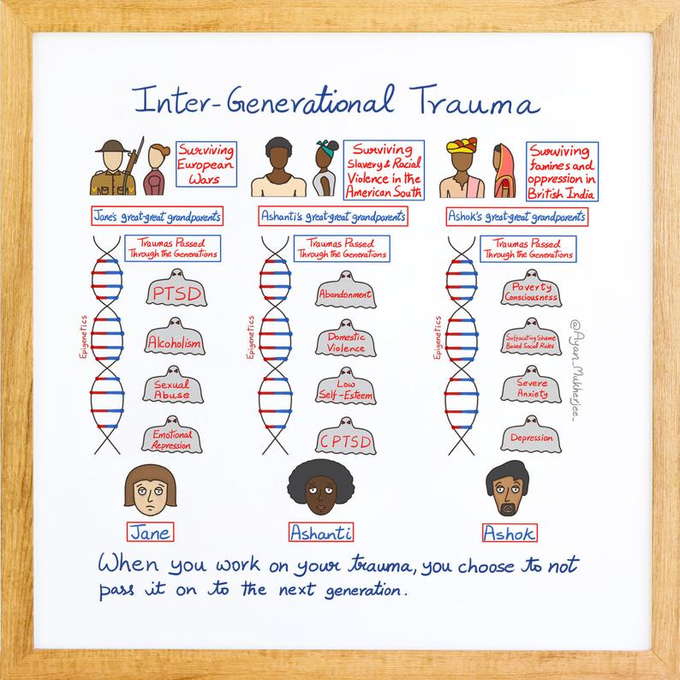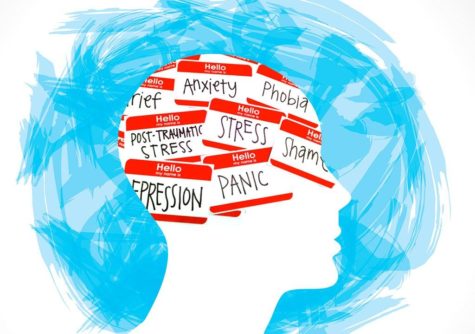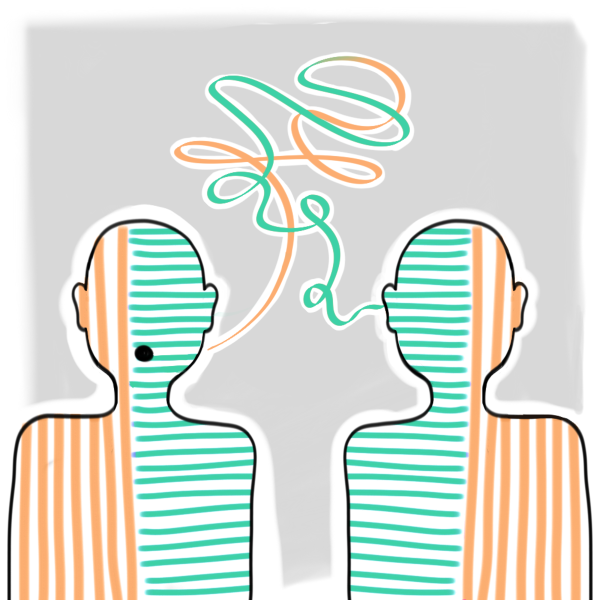Intergenerational Trauma in the Black Community
February 12, 2020
Psychohistorians at Psychology Today define intergenerational, or transgenerational, trauma as the unconscious transmission of trauma from one generation to the next. Intergenerational trauma affects groups of marginalized individuals in different ways. Black families who had ancestors that were slaves experience intergenerational trauma in a different manner than those who are Jewish and have family members who were part of the Holocaust, or Native Americans whose great-grandparents were forced into cultural assimilation. In many African-American families, the trauma of slavery has been passed down through several generations. This mass cultural oppression has had lasting effects such as post-traumatic stress disorder (PTSD) and psychological stress. It has left some not able to properly deal with their emotions. The impacts of intergenerational trauma go beyond psychological issues and can even affect one’s medical health. The US Centre reports that African Americans have higher incidences of high blood pressure, diabetes, and heart disease compared to white Americans because of intergenerational trauma. The extent to which one is affected by intergenerational trauma depends on three key factors: the level of identity development, exposure to racism, and the knowledge of the subjugation and painful experience of the previous generations.
Slavery isn’t the only example of intergenerational trauma within the African-American community. Black parents have had to express to their children, specifically their sons, about the increasing dangers of police encounters and police brutality. The American Psychological Association notes that these shared fears among the Black community can lead to distrust among an outside group (in this case, among white police officers). For many, intergenerational trauma does not affect their day-to-day life, but has a long-lasting effect. Overtime, the feelings of anxiety and high stress cause negative psychological issues in African Americans. Additionally, United States Politics and Policy notes that black adults are almost two times as likely to suffer from diabetes, high blood pressure, prostate cancer, and heart disease.
The American Psychological Association acknowledged that “racism and racial discrimination adversely affect mental health by diminishing the victim’s self-image, confidence, and optimal mental functioning.” However, many psychologists struggle to understand intergenerational trauma and its effects. It’s important for specialists to become more knowledgeable and educated on intergenerational trauma to help families begin the healing process and to create a generation of individuals equipped with healthier coping mechanisms.







